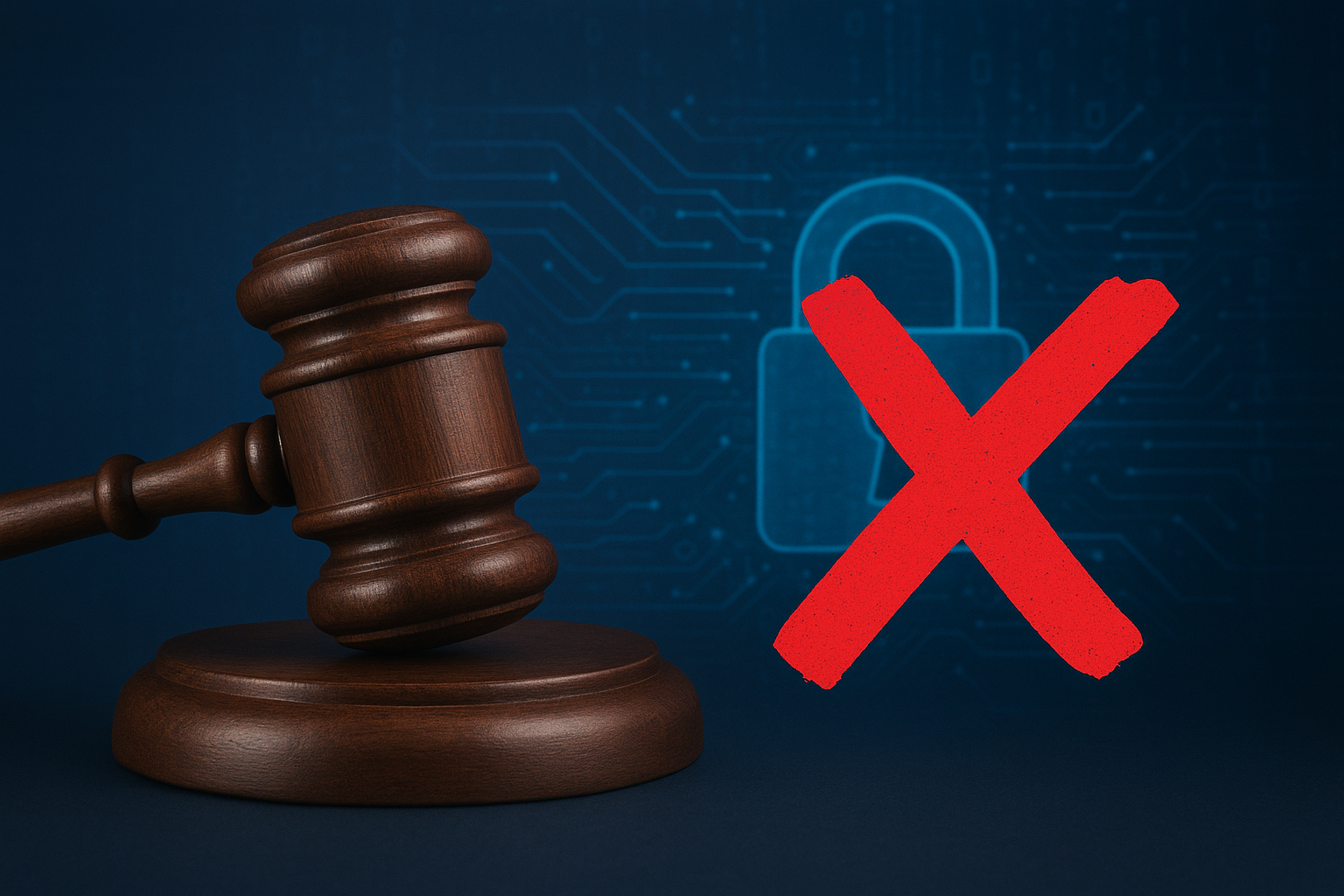.png?width=1200&height=1200&name=Untitled%20design%20(2).png)
From Compliance to Liability: How the False Claims Act and CMMC 2.0 Are Reshaping Defense Contracting
What is the False Claims Act?
The False Claims Act (FCA) is the U.S. government’s most powerful tool against fraud involving federal funds. It now applies broadly to any federal program especially in the Department of Defense
Key Features:
- Liability for False or Fraudulent Claims – Knowingly submitting, or causing the submission of, false claims for payment is prohibited.
- Low Threshold of Knowledge – “Reckless disregard” or “deliberate ignorance” is enough to establish liability.
How the FCA Applies to Defense Contractors
The Department of Defense spends hundreds of billions each year on contracts for weapons systems, IT, logistics, and cybersecurity. Contractors who mishandle funds, cut corners, or misrepresent compliance risk FCA liability.
Common FCA Triggers in Defense Contracts:
- Overbilling or Inflated Costs – Charging for labor, parts, or services not actually provided.
- Defective or Nonconforming Deliverables – Supplying equipment that fails to meet contract standards.
- False Certifications of Compliance – Submitting invoices while out of compliance with rules such as the Buy American Act, ITAR, or DFARS cybersecurity clauses.
- Cybersecurity Failures – Certifying compliance with NIST SP 800-171 while failing to safeguard Controlled Unclassified Information (CUI).
- Kickbacks or Conflicts of Interest – Concealing improper financial relationships tied to government work.
CMMC 2.0: Raising the Stakes
This is where the Cybersecurity Maturity Model Certification (CMMC) 2.0 comes in.
- CMMC 2.0 requires defense contractors (and their subcontractors) to meet and verify cybersecurity standards that align closely with NIST SP 800-171.
- Under pending DFARS 7021 rules, defense contracts will eventually mandate independent third-party assessments (for Level 2 contractors) to verify compliance.
- This means contractors can no longer simply “self-attest” without proof — and false claims of CMMC compliance could trigger FCA liability.
The Aero Turbine case shows why this matters: certifying cybersecurity compliance when it’s not actually in place isn’t just a contract issue — it’s a potential fraud issue. As CMMC 2.0 rolls out, FCA enforcement will become an even sharper tool for DOJ to hold defense contractors accountable.
Case Study: Aero Turbine & Gallant Capital Partners
On July 31, 2025, the DOJ announced a $1.75 million settlement with:
- Aero Turbine Inc. (ATI), a California defense contractor, and
- Gallant Capital Partners LLC, its private equity sponsor.
Allegations
- Cybersecurity Noncompliance – ATI certified compliance with DFARS cybersecurity requirements but allegedly failed to fully implement NIST SP 800-171 safeguards.
- Unauthorized Foreign Access – A Gallant employee allegedly gave unauthorized foreign personnel access to sensitive defense information.
Why Gallant Was Involved
DOJ didn’t stop with the contractor. Gallant, the private equity owner, was accused of causing false claims due to its operational role at ATI.
The Role of Self-Disclosure
ATI and Gallant voluntarily disclosed the violations, cooperated with DOJ, and took corrective measures. This proactive approach earned them significant credit and limited the financial penalty.
Without self-disclosure, the settlement could have been multiple times higher — as much as 2x–3x actual damages.
Lessons Learned
- Cyber-FCA Enforcement is Accelerating
DOJ’s Civil Cyber-Fraud Initiative leverages the FCA to enforce cybersecurity obligations. Aero Turbine is a clear example. - CMMC 2.0 Makes Noncompliance Riskier
With CMMC 2.0 assessments looming, contractors will face increased exposure if they certify compliance falsely. FCA liability is now a very real consequence. - Compliance Programs Must Be Robust
Contractors must secure CUI, document compliance with NIST and DFARS, and ensure accurate certifications. - Self-Disclosure Pays Off
Transparency and cooperation with DOJ can significantly reduce liability.
Conclusion
The False Claims Act is not just a fraud statute — in defense contracting, it is increasingly a cybersecurity enforcement mechanism.
The Aero Turbine and Gallant Capital case proves that:
- Failing to meet cybersecurity obligations under DFARS and CMMC 2.0 is more than a compliance gap — it can be treated as fraud.
- Contractors who embed compliance into operations and embrace self-disclosure are better positioned when issues arise.
As CMMC 2.0 becomes reality, defense contractors must treat cybersecurity compliance not as a paperwork exercise but as a mission-critical obligation. Otherwise, the FCA will ensure that failure comes at a very real price.
Get Compliant, and Stay in Compliance.


.png?width=1200&height=1200&name=Untitled%20design%20(1).png)